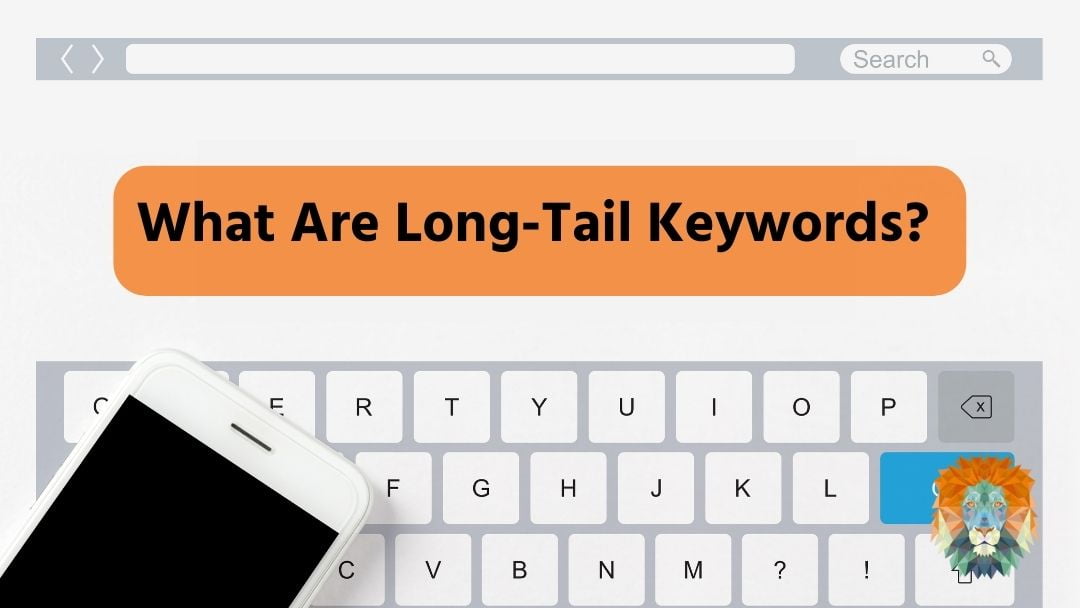When it comes to being found on Google, keywords are something you need to pay attention to. You’ve probably heard this term a lot. You might even be sick of it by now – but it is critical to your online success. Keywords are the backbone to many SEO strategies, especially those involving content, which is why you need to really put some effort into finding the right keywords for your website. But how do you find the right keywords for SEO, what are they, and why?
What Is A Keyword?
Thankfully there’s no magical quality that makes a word a keyword. A keyword is simply any word or phrase that people would type into a search engine. Sometimes it’s an exact match, while other times it’s about getting as close as possible to the search terms being used out in the real world.
When someone types a word into their search engine, Google will look through its database to find websites that use that term. It will then sort all of those results into order based on which it thinks is most relevant to the searcher, and present them as results. All within around 0.28 seconds – though it will tell you the exact time it did the search in under the search bar. Google is very proud like that!
A keyword doesn’t have to be just one word. In fact, it’s often more than one word, also known as a keyword phrase. This is how you as a business owner can show Google what searches you would be relevant to – by using lots of long-tail keywords and related search terms in your content. The better your keyword rankings are, the higher your website will rank in searches.
How Does Keyword Research Work?
Keyword research is the process of finding and analysing actual search terms that people use on a day-to-day basis. In other words – it’s finding out what people are actually typing into Google to find companies like yours. Many business owners think they have a good idea of what those words and phrases are without much research, and are almost always surprised by how different the results actually are. By doing this small amount of research, you can hone your content and tweak your website to draw more and more visitors, and hopefully convert them into customers.
Keyword research has evolved a lot over the last decade – with new tools and techniques all designed to make the process simpler and improve results. Now keyword research doesn’t just look to match the term exactly – it looks for the intent behind the keyword, and whether or not a piece of content can match that intent and solve the query. This means that keyword research won’t just help you rank higher on search results – it can also be used to find out what topics people care about, how popular those topics really are among your audience and show you where to focus your content strategy for growth.
Why You Need Tools For Keyword Research
The problem is a lot of people make the same mistake with keywords – and that’s picking them themselves. Choosing terms you would like to be found for is all well and good, but that will be of no practical use to you if no one is actually searching for those terms. You need to do keyword research to make the most of your marketing. There are a number of different tools out there to help with this, each designed to show you exactly what words and phrases people are typing into Google to find services like yours. Some of these tools are free, and some of them cost a bit of money, but all of them can help you find the right keywords for your website.
Our Favourite Keyword Tools
Google Keyword Planner
Google Keyword Planner is a free tool within the Google Ads ecosystem, and helps you find out what people are searching for when they look for businesses like yours. All you need to do to use it is set up an account and plug some details about your business in. It will then generate a list of keywords, along with their search volumes, advertiser competition, cost-per-click data and any seasonal traffic fluctuations. You can also look back at the performance of those keywords over the last 12 months, which can be useful when trying to choose which ones you want to target.
SE Ranking
This one is simple! Simply enter the domain name for the competitor’s site you want to get the ranking keywords for and press start now. Remember to pick the country you are looking in too to get accurate information. SE ranking is a paid tool but it is much more reasonably priced for beginners and they offer a 14 day trial they even guide you through how to get the most out of the platform.
SEMRush
SEMRush is one of the biggest SEO tools on the market. There are a lot of things it can do, including content marketing, competitor research and PPC campaigns, but SEO is the core focus, and it does it very well. Anything you could possibly want to know about keywords for your business, SEM Rush can tell you.
Google Search Console
Next up is Google Search Console. This tool helps you monitor, manage and analyse the performance of your website. Using it, you can trace current keywords and their performance, along with the average ranking of your website URL, impressions and click-through rates. So you can see where each page of your website is ranking, and use this data to optimise those pages to get better results. The keyword tracer can be a huge help in doing this, and boost your results in the process.
Rank Tracker
This is an interesting tool that lets you analyse your Google rankings over time, and monitor your performance against competitors. It’s a tool with arguably the largest keyword database, growing at a rate of around 4000 words per minute. Within Rank Tracker there are 23 different keyword research tools, with suggestions from Google, Yahoo, Bing, Amazon, Google Ads Keyword Planner, Google Search Console, Keyword Database and more. It basically brings all of the above tools together and lets you research every element of your chosen keywords in detail. Best of all they let you try it for 7 days for free!
This is a very basic overview, but doing even this will put you head and shoulders above the competition. You now know how to research your keywords properly, and how to use them in your business more effectively. In an ideal world, your keywords would be woven throughout your website and your content marketing, casting a web that catches anyone using those terms and draws them to your website.
Do you need help with your SEO?
Keyword Research is just one part of what our customers get when they sign up for one of our SEO packages. SEO is something that anyone could do themselves but there is a lot to learn to get it right consistently, our team has years of experience in SEO and stays up to date with the latest algorithm changes and techniques, so if you need help with SEO for your business check out our packages.
At Lion Spirit Media our digital marketing services cover every element of the marketing journey, from creating strategies, researching keywords and creating websites that rank well right off the bat. If you’d like to find out more, just get in touch with the team today.





0 Comments